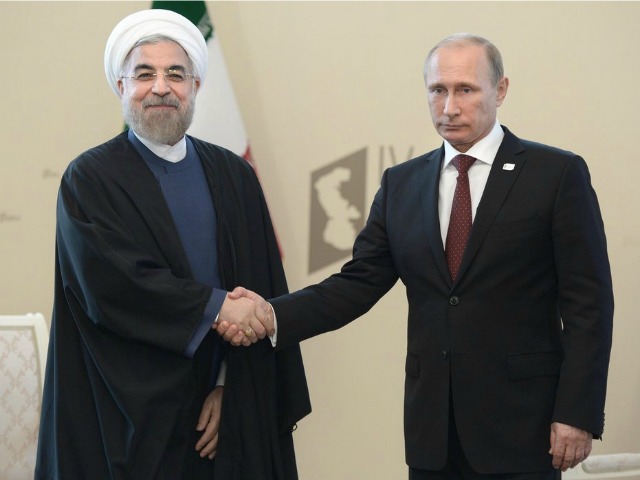
With a deadline for a nuclear deal between the Islamic Republic of Iran and the five Western powers less than three weeks away, the New York Times is breathlessly reporting that Iran has “tentatively agreed to ship much of its huge stockpile of uranium to Russia if it reaches a broader nuclear deal with the West.”
Diplomatic correspondent David Sanger cites unnamed “diplomats involved in the negotiations,” to buttress their claim that the agreement represents “potentially a major breakthrough in talks that have until now been deadlocked.”
In the terms of the so-called “breakthrough” agreement—no copies of which have been seen by anyone outside the administration and which has been denied by Iranian officials—Sanger reports that Russia and Iran have reached an agreement for Russia to convert an undetermined amount of Iran’s stockpile of highly enriched uranium into the fuel rods necessary to power Iran’s sole commercial nuclear reactor at Bushehr.
Commercial power fuel rods are thought impossible to convert into fuel for nuclear weapons. According to Sanger, such a concession would remove a major Western concern that Iran could continue the expansion of its nuclear weapons program.
“If the Iran-Russia deal works,” Sanger quotes his unnamed White House source, “it could be the cornerstone of something much larger.”
Deputy Secretary of State Wendy Sherman, the former social worker turned America’s top nuclear negotiator was recently quoted as saying, “we have made impressive progress on issues that originally seemed intractable.” As a deputy to former US Secretary of State Madeline Albright, Ambassador Sherman led the American team that negotiated the since-discredited nuclear weapons for cash deal with the rogue North Korean regime in 2000.
Under the terms of that deal, the US agreed to drop North Korea from the US government’s state sponsor of terrorism lists and to provide hundreds of millions of dollars of emergency food aid in exchange for North Korea’s promise to limit its nuclear activities. In 2006, after accepting an estimated $1 billion in American cash and food aid, North Korea detonated its first nuclear weapon.
The Times’ report helpfully cautions would-be cheerleaders of President Obama’s highly controversial efforts to accommodate Iran’s increasingly advanced nuclear program:
History suggests that an agreement with Iran to part with much of its nuclear stockpile, which it has spent billions of dollars to amass despite Western sanctions and sabotage, is never a sure thing. A deal struck between the Obama administration and Iran in 2009 to ship some of its nuclear fuel out of the country—an agreement that would have left Iran with less than the required amount of uranium to make a single nuclear weapon—fell apart when it was brought to Ayatollah Ali Khamenei, the supreme leader. There is clearly a concern that the same thing could happen again, or that the Revolutionary Guards Corps, which is believed to run the military side of the nuclear program, could object.
Iran had 130 centrifuges with which to enrich uranium to fuel-grade levels when negotiations between Iran and the P5+1 group of Western powers began in 2003 and was not able to produce any fissile material. Today, Iran openly acknowledges having processed at least 15,000 pounds of low-grade enriched uranium with its 19,000 centrifuges. Iran’s Supreme Leader, Ayatollah Khamenei often re-states his nation’s commitment to expand its uranium enrichment capability to include at least 100,000 centrifuges.
Still, US negotiators remain optimistic. At his post-election press conference today, President Obama seemed to reinforce the optimism of his negotiating team. “They [the Iranians] have come to the table,” said the President, “and they have negotiated seriously around providing assurances that they’re not developing a nuclear weapon for the first time.”

COMMENTS
Please let us know if you're having issues with commenting.